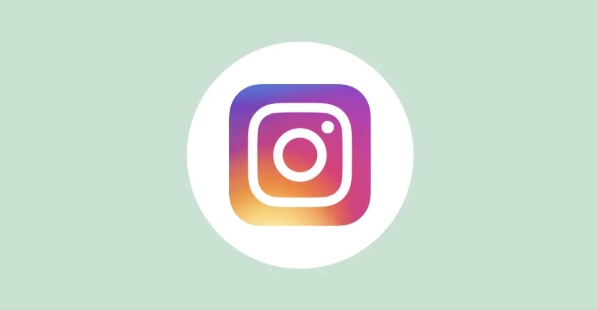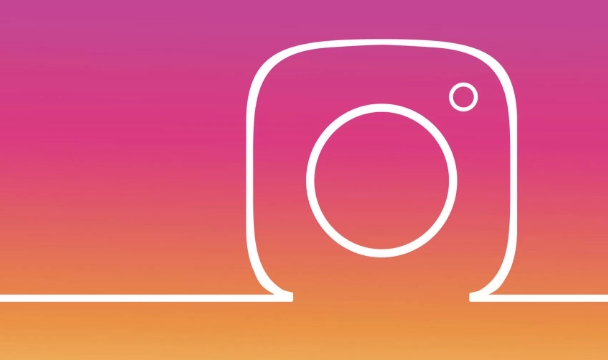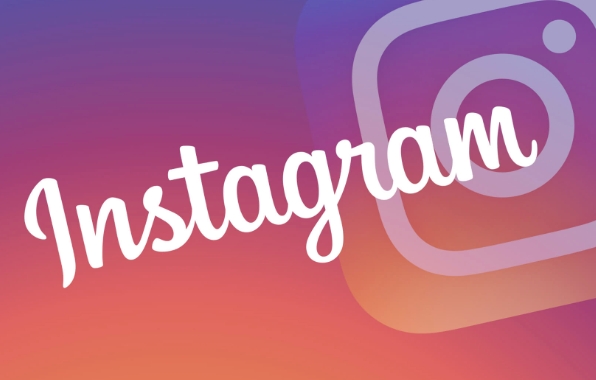Why did Instagram remove the 'Recent' tab from hashtags
Instagram removed the real-time "Recent" tab in 2020 to combat misinformation and harmful content by preventing instant spread of unfiltered posts during sensitive events; 2. It shifted focus to "Top" and algorithmically filtered "Recent" tabs to promote higher-quality, engaging content based on user interactions; 3. The change reduced spam and bot activity that exploited trending hashtags for visibility; 4. It aligned with Instagram’s broader move toward algorithmic content discovery in Explore and Reels, giving the platform more control over user experience and engagement; today, the "Recent" tab is not truly chronological but filtered for safety and quality, resulting in a trade-off of immediacy for a safer, more curated experience.

Instagram removed the "Recent" tab from hashtags in 2020 as part of a broader effort to reduce the spread of harmful or misleading content and improve the overall user experience.

Here’s a breakdown of the main reasons:
1. Combat misinformation and harmful content
The "Recent" tab allowed content to appear instantly under a hashtag, making it easy for false information, hate speech, or graphic content to spread quickly—especially during sensitive events like elections, protests, or public health crises (e.g., the pandemic). By removing real-time visibility, Instagram gained more control over what appears, allowing time for automated systems and human moderators to filter out violating content.

2. Promote higher-quality, relevant content
Instead of showing the latest posts first, Instagram now emphasizes the "Top" and "Recent" (which is actually algorithmically filtered, not truly chronological) tabs. This shift helps surface more engaging, high-quality content based on user behavior—likes, shares, comments, and relationships—rather than just recency.
3. Reduce spam and bot activity
The old "Recent" tab was often flooded with spam, bots, and low-effort content trying to ride trending hashtags. Removing pure chronological sorting made it harder for bad actors to exploit hashtags for visibility.

4. Align with algorithmic content discovery
Instagram has been moving toward algorithm-driven feeds and discovery (like Explore and Reels) for years. Removing the unfiltered "Recent" tab fits this strategy—giving Instagram more control over what users see and increasing engagement with content that keeps people on the app longer.
What users see now:
When you search a hashtag, you’ll typically see:
- Top: Most popular or engaging posts
- Recent: Not truly "recent"—still filtered to exclude rule-breaking or low-quality content
- Following: Posts from accounts you follow (if available)
- Reels: Video content under that hashtag
So while the "Recent" tab still exists in name, it’s no longer a raw, real-time feed. True chronological sorting is gone.
In short: Instagram removed the real-time "Recent" tab to reduce abuse, improve content quality, and keep users engaged with algorithmically curated content. It wasn’t just about cleaning up hashtags—it was about control, safety, and keeping the platform scalable in a high-stakes information environment.
Basically, it’s a trade-off: less immediacy, but (ideally) a safer, more engaging experience.
The above is the detailed content of Why did Instagram remove the 'Recent' tab from hashtags. For more information, please follow other related articles on the PHP Chinese website!

Hot AI Tools

Undress AI Tool
Undress images for free

Undresser.AI Undress
AI-powered app for creating realistic nude photos

AI Clothes Remover
Online AI tool for removing clothes from photos.

Clothoff.io
AI clothes remover

Video Face Swap
Swap faces in any video effortlessly with our completely free AI face swap tool!

Hot Article

Hot Tools

Notepad++7.3.1
Easy-to-use and free code editor

SublimeText3 Chinese version
Chinese version, very easy to use

Zend Studio 13.0.1
Powerful PHP integrated development environment

Dreamweaver CS6
Visual web development tools

SublimeText3 Mac version
God-level code editing software (SublimeText3)

Hot Topics
 How to delete my Alipay account permanently?
Jul 04, 2025 am 02:09 AM
How to delete my Alipay account permanently?
Jul 04, 2025 am 02:09 AM
To permanently delete an Alipay account, you must contact customer service and meet specific conditions. Users need to unbind their bank card, cancel automatic deductions, settle their debts, and close their associated investment products first, and then contact Alipay customer service by calling 95188, using the App Help Center or submitting online requests, but the account may not be deleted immediately due to transaction disputes, unsettled debts, legal restrictions or recent modifications. Even if it is successfully closed, some data will still be retained in accordance with Chinese financial regulations.
 How to verify an Alipay account for foreigners?
Jul 04, 2025 am 01:56 AM
How to verify an Alipay account for foreigners?
Jul 04, 2025 am 01:56 AM
Verifying an Alipay account as a foreigner is now more convenient, with only a passport and a Chinese mobile phone number. Specific steps: 1. Prepare a valid passport, Chinese mobile number and log in to Alipay; 2. Open the application and enter the "My" page to find the real-name authentication option; 3. Select the overseas user entrance, fill in the passport information and upload photos; 4. Follow the instructions to complete the self-port verification; 5. Wait for a few seconds to confirm the result. Notes include ensuring clear photos, good lighting, and some features such as Huabei may still be unavailable. If you encounter any problems, you can seek support through the Help Center or customer service.
 What is Alipay Huabei (Ant Credit Pay)?
Jul 09, 2025 am 12:18 AM
What is Alipay Huabei (Ant Credit Pay)?
Jul 09, 2025 am 12:18 AM
AlipayHuabei (Ant Huabei) is a "enjoy first and pay later" service provided by Alipay. Users can use this function to consume on online platforms such as Taobao and Tmall and offline merchants, and choose to repay the full amount at the end of the month or pay in installments. The quota is dynamically evaluated by the system based on user's transaction records, account information and the use of Alibaba's ecological services. 1. When using it, just choose Huabei as the payment method; 2. There is a monthly billing cycle and enjoy an interest-free period of about 40 days; 3. You can choose the minimum repayment but interest will be generated; 4. Large-scale consumption can be divided into 3, 6, 12 periods or even longer periods. Common uses include shopping, living expenses, takeaway ordering, supermarket consumption, travel reservations and tuition payments. It is recommended to set up automatic management
 What are the daily and yearly limits for Alipay?
Jul 07, 2025 am 01:29 AM
What are the daily and yearly limits for Alipay?
Jul 07, 2025 am 01:29 AM
The transaction limit of Alipay varies according to real-name authentication, binding bank card types and usage scenarios. The daily transfer limit is 50,000 yuan per day, the payment of scanning code generally does not exceed 50,000 yuan per day, the red envelopes are not exceeding 200 yuan, and the maximum is 100 per day; credit card-related operations are determined by the issuing bank. The total annual transaction volume usually does not exceed 200,000 yuan. Bind multiple bank cards or upgrade the account level can increase the limit. Users can apply for an increase in amount by completing identity verification, binding more bank cards, increasing account activity, or contacting customer service.
 What are the transaction limits for a foreign user on Alipay?
Jul 12, 2025 am 02:45 AM
What are the transaction limits for a foreign user on Alipay?
Jul 12, 2025 am 02:45 AM
Yes,Alipayhastransactionlimitsforforeignusers.Unverifiedaccountshaveadailylimitofaround1,000RMBandamonthlycapof5,000RMBwithnotransferorsavingsfeatures.Afterbasicverificationwithapassport,dailylimitsincreasetoupto5,000RMBandmonthlylimitsreach20,000–50
 How to delete my WeChat account permanently?
Jul 11, 2025 am 03:12 AM
How to delete my WeChat account permanently?
Jul 11, 2025 am 03:12 AM
Yes, you can permanently delete your WeChat account, but the process is relatively complicated, and you need to meet multiple conditions and go through a 60-day cooling-off period. 1. Before deletion, make sure that the account is not bound to a mini program, third-party application or service, and there are no group chats and public accounts under management. Clear payment records and unbind the bank card; 2. Back up chat records in advance, unbind the bank card, exit or transfer administrator rights, and cancel follow the official accounts and mini programs that are no longer needed; 3. The operation path is "Me">Settings>Account and Security>WeChat ID>Lock the account. After submitting the application, you must complete the identity verification and enter the 60-day waiting period; 4. If you do not log in during the waiting period, the account will be permanently deleted, the information cannot be restored, and the WeChat account cannot be re-registered, but messages saved on other people's devices are
 Can I use WeChat on two phones at the same time?
Jul 11, 2025 am 03:28 AM
Can I use WeChat on two phones at the same time?
Jul 11, 2025 am 03:28 AM
Yes, but there are restrictions. ① You can log in to the same account on both iPhone and Android phones, but logging in to the latest device will cause the earliest session to be offline; ② You can log in at the same time on the mobile phone and the computer desktop, but the functions are not synchronized; ③ Although using third-party tools or dual-app functions can enable logging in between two mobile phones, it is unofficially supported and may violate regulations; ④ Alternative solutions include using web version/desktop version to match the main phone, or transferring chat records through cloud backup and file tools. Some Android machines can also use "dual applications" to run two account instances.
 Can I have two Alipay accounts?
Jul 13, 2025 am 03:09 AM
Can I have two Alipay accounts?
Jul 13, 2025 am 03:09 AM
You can have two Alipay accounts, but there are restrictions. First, an ID card can only bind to an Alipay account with a fully real-name authentication, and the second account will be restricted; second, two accounts can be run through the app clone on an Android phone, but you need to use different mobile phone numbers to receive verification codes; finally, unless there is a strict fund isolation requirement, similar functions can be achieved by binding multiple bank cards or creating a family sub-account, and in most cases there is no need for additional accounts.







